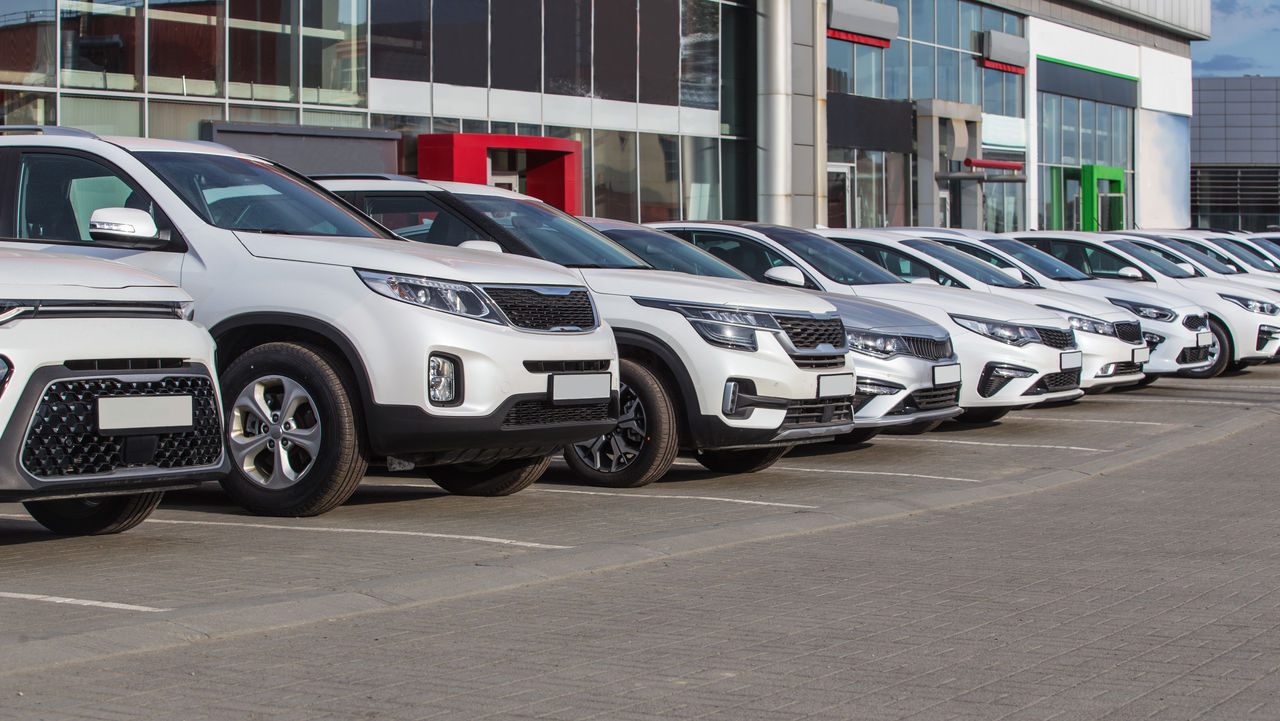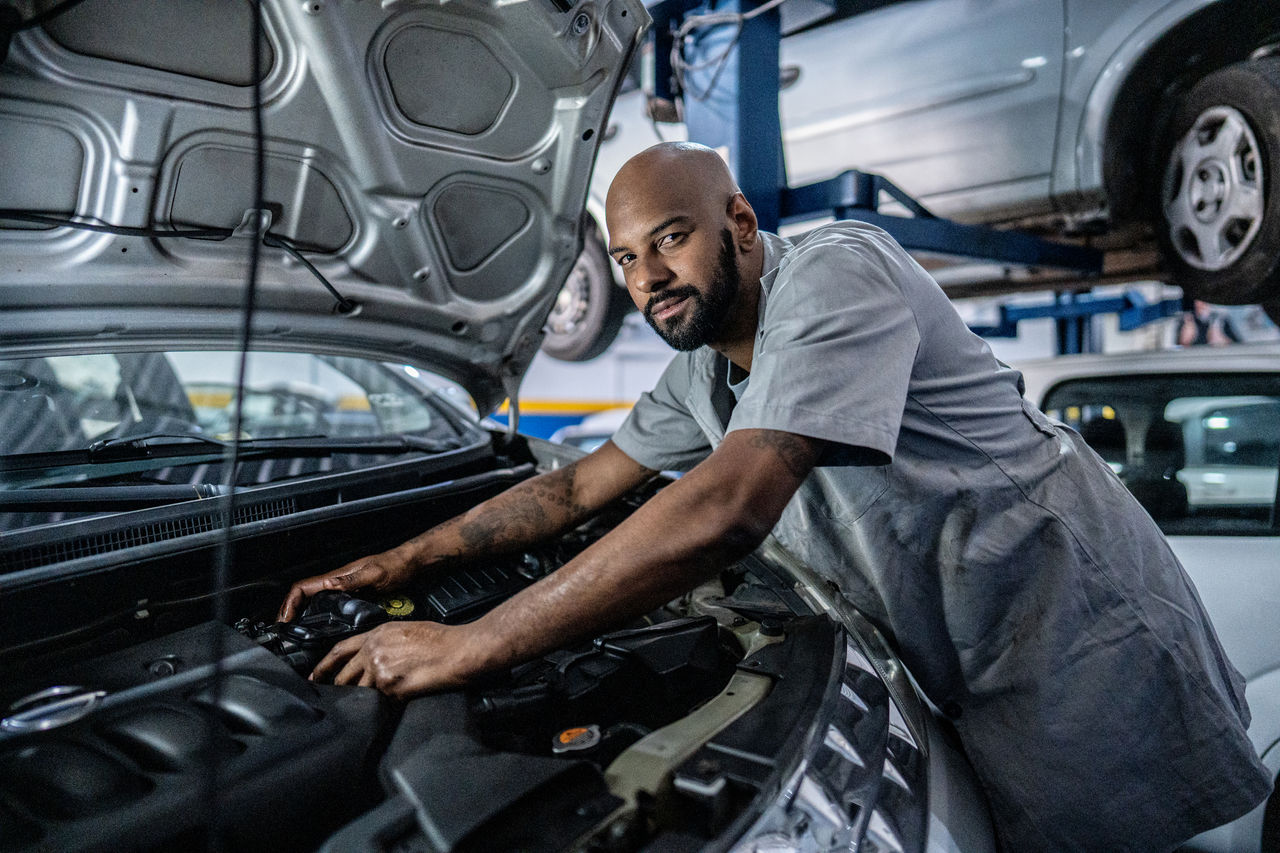Buying a car, whether a new one or a used one, can be scary and overwhelming. But it doesn't have to be!
Rev up your car-buying journey with these 23 expert steps! From your first dealership visit to driving off in your dream car, BBB will help you have a smooth experience.
Before going to a dealer
You can do a lot to get ready before you even set foot in a dealership. Here are some ways to be an educated and prepared consumer:

1. Consider payment options.
Take time to consider your payment options. You often have two options:
| Pros | Cons | |
| Pay in full | No interest or payment plans | Paying the entire amount upfront |
| Finance over time | Less money upfront | Increases overall cost if paying interest |

2. Set a budget.
Do not automatically spend whatever you qualify for in a loan. Decide how much money you can spend based on the maximum amount you have saved up to pay or the maximum down payment and monthly payment you can afford if you are financing the car through a loan.
When calculating the cost, be sure to include the price of the tax, title, registration, fees, and insurance. As the purchaser of the car, you are responsible for insurance, and the dealer is not obligated to cancel a contract because you find out later you cannot afford to pay insurance.
When evaluating the impact of owning a vehicle on your overall budget, consider factors like how much gas the car will use and how much maintenance and repairs will cost.

3. Leasing?
Determine whether buying or leasing the car provides the best value for your money.
| Pros | Cons | |
| Buying | Provides a path to ownership | Higher monthly payments More money upfront |
| Leasing | Lower monthly payments Little cash upfront | Restricted mileage Must return the car after the lease ends |

4. Choose a make and model.
Check out various brands and models to determine the safest, most reliable, and most suitable for your lifestyle. Research and think about the car's equipment and options, the safety features you want, the conditions you will be driving in, and any other needs you have in mind for yourself or your family. Will you use it for commuting short distances or taking long road trips? How many passengers must fit comfortably? How long do you want to keep it?
Consult unbiased resources like Consumer Reports and consider additional factors like fuel economy (see below), warranties, and operating costs. Also, look into theft statistics, as those can impact your insurance rates. Investigate different cars' accident history and recalls.
Narrow your choices to several vehicles. Do not make the mistake of having your heart set on one car -- it may reduce your bargaining power.
Gas or electric? One of the most important decisions when considering a vehicle model is whether it runs on gas, electricity (EV), or hybrid. There are even different types of hybrids, like plug-in hybrids (PHEVs) and hybrid electric with a battery (HEVs). Do your research on which type of car you would prefer. Check the laws in place where you live regarding when and if cars will be required to be electric-- plus any applicable tax credits for purchasing an EV. Consider the costs associated with each option as well as the location of charging stations near you. The U.S. Department of Energy and Environment and Climate Change Canada have resources and information.
At the dealership
Remember that an ethical auto dealer will give you the time you need to make a conscious and thought-out decision on this major purchase. If someone is rushing you and putting pressure on you, you may not want to do business with them.
Here are some things to do during your visit to the dealership:

12. Decide if you are buying from stock or ordering from the factory.
Sometimes, you will get a better deal for a car already in stock because the longer a vehicle sits on the lot, the more expensive it is for the dealer. These cars may have costly options that you neither need nor want. Ask the dealer to remove the option -- and reduce the cost -- or sell you the vehicle without charging for the option. Sometimes, the better deal will come with ordering a car. Discuss all possibilities to see which works best for you—factor in the time you have to wait for a vehicle from the factory into your decision-making.
13. Discuss your trade-in.
Once you have finalized the price for your new car, move on to discussing the trading in of your old car. Keeping that negotiation separate from the price of the new vehicle will help you stay focused on the actual price of the new car.

14. Ask about warranties and service contracts.
Make sure the information on your warranty is detailed and includes whether the warranty is full or limited, what is covered, who covers it, and for how long. Read all the details about additional service contracts and ensure you understand them completely before signing anything.
If you are considering an extra-cost service contract, closely compare it to your warranty to check for duplication. Unless the service contract offers complimentary scheduled maintenance or other services, having a service contract while the warranty is in effect may not be economical. If you decide to buy a service contract, do some comparison shopping. For instance, purchasing a service contract through an insurance company may save you money.
Signing the contract
While some dealers may write a three-day cancellation into your contract, there is no blanket three-day cancellation rule (unless your purchase falls within the door-to-door rule because you received a promotion to go in for a test drive). Once you sign the contract, you are legally bound to buy the car unless the contract specifically states any options to cancel, so it is imperative that you read and understand everything before signing.
Before you drive away
Before you sign any final papers and drive away from the dealership in your new car, take a few minutes to inspect it carefully.
After the sale
23. Be sure to keep all of your paperwork in a safe place, including the warranty and loan papers.
- In the United States, you may be protected by "lemon laws" in your state. You can contact your state's Attorney General's office to find out about the law where you live. BBB Auto Line also has information on the lemon laws in each state, as well as a dispute resolution program to help you with your lemon law complaint.
- In Canada, there are no 'lemon laws,' but purchasers of new and late model cars can access CAMVAP – the Canadian Motor Vehicle Arbitration Plan. You can find more information about qualifications and exclusions for this binding arbitration program.













